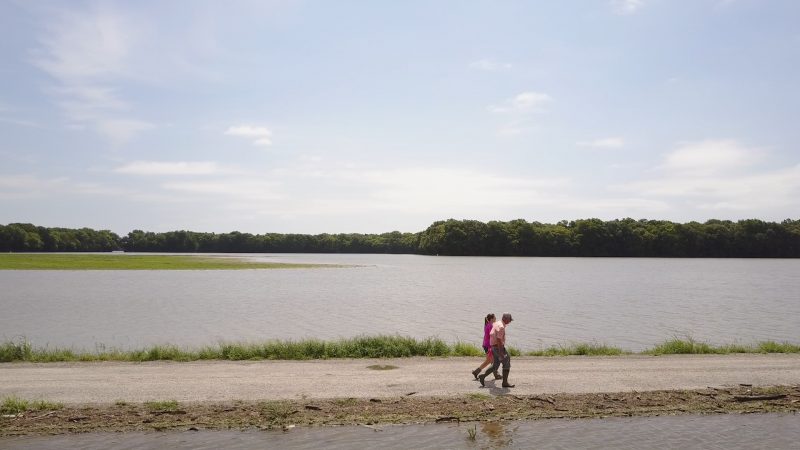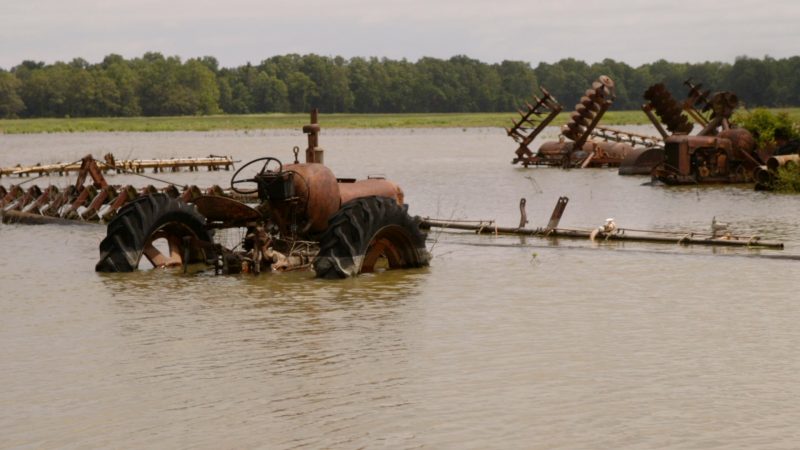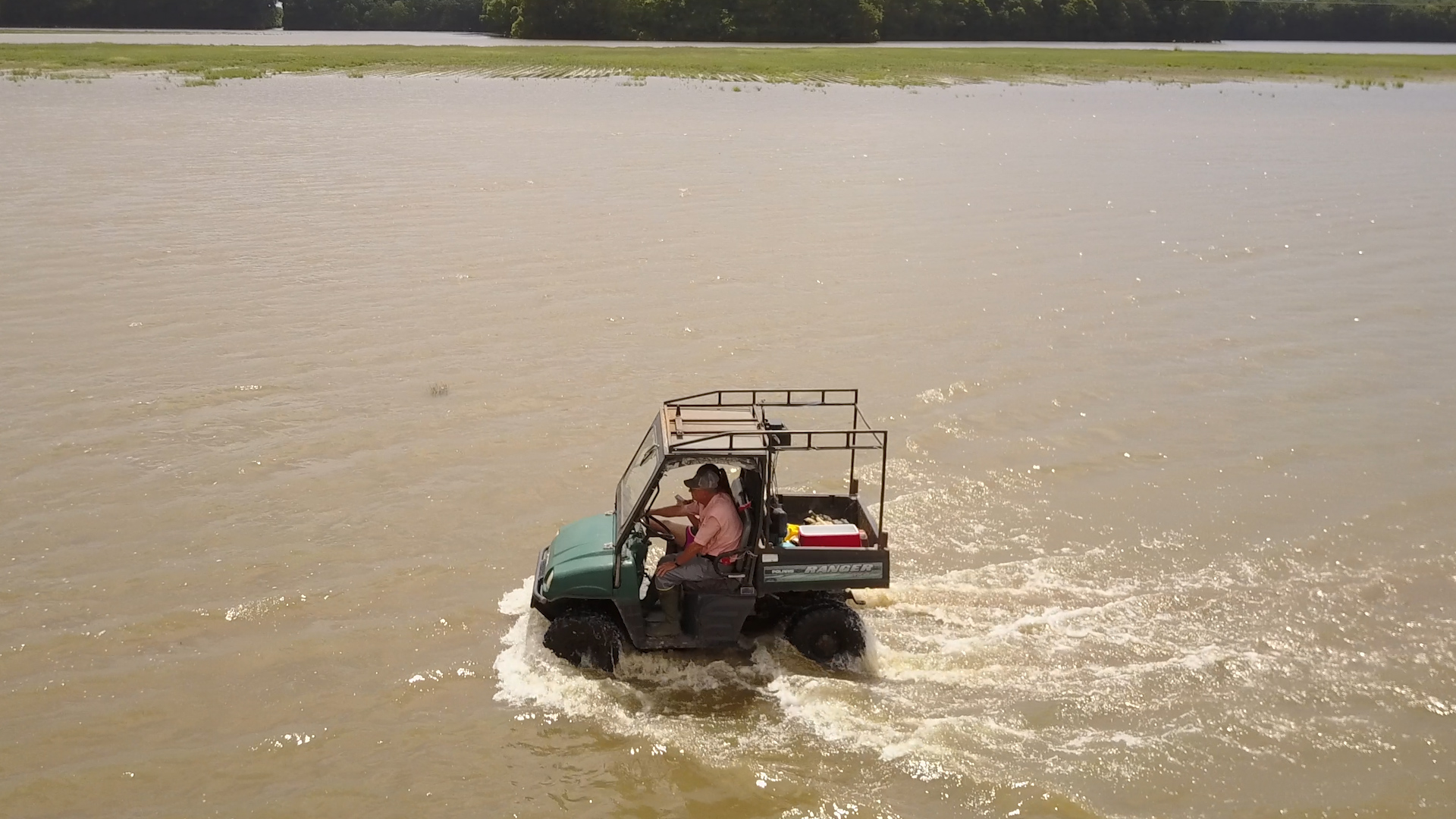- Much of the Mississippi Delta has been submerged under feet of water for months. At the flooding’s peak, water spread in an area over twice the size of New York City.
- Storms, like Hurricane Barry, have exacerbated the flooding. Some farmers told us that recent storms have caused waters to rise even further.
- Farmers in the area aren’t able to plant in their flooded fields, forcing them to delay planting crops in an already difficult year because of the trade war with China.
- Visit Business Insider’s homepage for more stories.
VICKSBURG, Mississippi – Tropical Storm Barry did not ravage Louisiana to the extent that forecasters initially predicted, but its compounded effects have made this year the worst in nearly a century for farmers in the Mississippi Delta.
Heavy rains and storms since February have caused the Mississippi River to swell. At the brink of Barry’s landfall, the river posed the risk of “life-threatening inundation” in Louisiana and southwest Mississippi.
While Barry did not bring the wrath that was originally predicted, the increased flooding in the Delta has ruined farmers’ harvest this year. Videographer Nathan Willis traveled rural Mississippi to see for himself, and talk with farmers who’ve won’t be planting this year for a recent episode of “Business Insider Today“.
The worst flood since 1927
Randy and Victoria Darden glide across the water, 6 feet above what should be a healthy field of soybean crops.
As winter turned to spring this year, they watched water seep into the fields and turn their family farm in Vicksburg, Mississippi, into a lake. Months later, the flood has not receded. In fact, the Dardens say, after recent storms, the waters actually rose.
"I won't have any income coming in this year," farmer Randy Darden told "Business Insider Today." "All I've got is expenses going out. Normally, I grow somewhere around $600,000."

Randy has lived on the L & R Farms for half a century. This is the first time he won't plant anything at all. Instead of a tractor, father and daughter travel their farm by boat and four-wheeler.
And they worry about what the flood will leave behind.
"Normally I would be out here anywhere from hip-high to higher soybeans," Randy's daughter, Victoria Darden, said. "To walk here and see all these weed growing is really frustrating, and it makes me mad. We'll be picking up this trash that has floated up from who knows where, probably for the rest of the year. "
Much of the Mississippi Delta has been flooded since February. At its peak, the water spread across 550,000 acres, inundating homes, businesses, and farmland across five counties - an area twice the size of New York City.
This year, flooding is plaguing agriculture far beyond the Delta.
Since late winter in 2018, unusually heavy rain, storms, and tornadoes have flooded land across the Midwest and the south, forcing farmers to delay planting crops like soybeans and corn in a year that many were already hurting because of the trade war with China.
Read more: China's 'soybean diplomacy' may delight Trump, but US soybean farmers are far less optimistic
So far, President Donald Trump has declared a major flood-related disasters in 11 states, freeing up financial relief for those affected.
This year's flood along the Mississippi River is the longest lasting ever, according to the National Oceanic and Atmospheric Administration.
By comparison, the Great Flood of 1993 affected mostly states north of Arkansas. It cost the federal government more than $4.2 billion in direct assistance.
The Mississippi Flood of 1927 mostly hit states south of Missouri. It caused about $1 billion in damage.
This year, both regions flooded.
As the Mississippi swelled with water from the north, everything traveled downriver, keeping the water levels high for months here in the Delta.
'This is a man-made problem'
Efforts to fight the rising waters go back to 1941, when Congress approved the Yazoo Backwater Project to help prevent floods like the one in 1927. The government built levees, drainage structures, and canals. There was also a plan to build pumps that could drain floodwaters from places like the Darden's farm.
Because of delays and other challenges, those pumps never got built.
In 2008, the EPA officially vetoed construction of the Yazoo Pumps, saying it would threaten wetlands and wildlife. Today, you'll see signs across southern Mississippi demanding the pumps.
"If we had the pumps, we wouldn't have this problem," farmer David Johnson told "Business Insider Today".
"I personally farm 3,000 acres, give or take, here in the lower Delta. I will not harvest a single acre this year. I'm going to lose money this year. It's all flooded. This is a man-made problem."

Meanwhile, the financial toll is mounting.
"When the farmers hurt then everyone hurts, from the bank that can't make a crop loan, to the agricultural equipment dealer that can't sell equipment, to the seed and feed supply person that can't sell us seed or fertilizer for those crops," Mississippi's Sharkey County commissioner Paul Hollis told "Business Insider Today". "It's a real trickle-down effect."
The $30,000 the Dardens poured into fertilizer last fall is gone. And this water will cost the family even more as it recedes, eroding the land and affecting soil quality.
Johnson said that he'll receive some income from insurance proceeds, but that amount will not replace the profit he'd make from his harvest.
Like Johnson, other farmers' compensation for a lost harvest isn't enough.
"Even with crop insurance, it's kind of like a Band-Aid. It really doesn't get you back to home," Hollis said. "We'll end up losing money because you still gotta make rent. You still gotta pay a landlord."
With much of this year's planting delayed or canceled altogether, commodity prices have climbed. Prices for corn and soybeans have surged since May, shortly after a USDA report showed crop growers were very behind schedule.
Only about half of expected corn crops were planted by mid-May, compared to almost 80% the year prior. Similarly, only a fifth of the soybeans were planted, compared to more than half in 2018. Since then, farmers have caught up somewhat, but both crops are still behind where they were expecting to be.
After a slight rise during Tropical Storm Barry in late July, floodwaters have just begun to recede, but they probably won't be completely gone for months, according to local government officials.

Meanwhile, for Victoria, the flood has altered her relationship to the place she considers both her home and her livelihood.
"You feel just mad, upset, heartbroken. The emotions are just a roller coaster," Victoria Darden said.
"It is very frustrating when you live somewhere that is normally just perfectly fine and some unnatural disaster happens like this and you feel so isolated. I can't stay on this farm more than a day."
